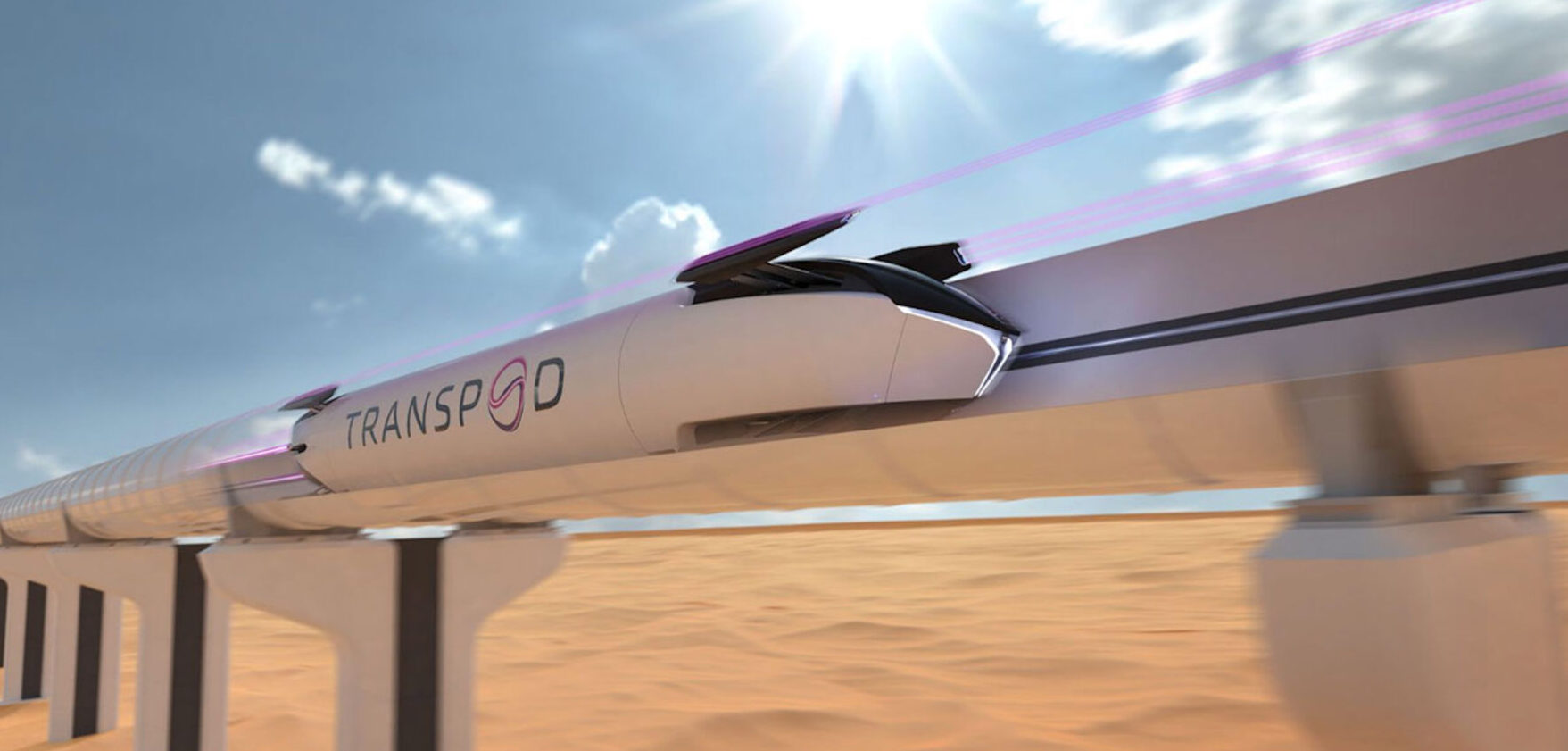The all-electric FluxJet will travel faster than a private jet, and will be significantly cheaper than flying commercial. Rose Dykins reports
Canadian startup Transpod has unveiled Fluxjet – a hybrid train-aircraft concept that aims to disrupt global transportation by offering ultra high-speed ground transport powered by clean energy that’s a more economic option than travelling by plane.
Born out of innovations in the scientific field of “veillaince flux”, the all-electric Fluxjet travels along a protected guideway thanks to a contactless power transmission and aerodynamic and propulsion systems that reduce the amount of friction working against it.
The all-electric vehicle can reach speeds of 1000 km/ph (621 mph) making it faster than many private jets, and three times as fast as a high-speed train.
Transpod envisions Fluxjet operating exclusively on its own transport network – the Transpod line – with stations in key locations in major cities across the world. The goal is to offer high-frequency departures that will support fast, affordable and safe travel – one that’s immune to traffic conditions, too.

Fluxjet has space for 54 passengers at once and two wheelchairs, as well as luggage racks for passenger bags (it can carry up to ten tonnes of cargo per trip).
As part of the next phase of development, Transpod is building the Transpod Line to connect the Canadian cities of Calgary and Edmonton – a project costing US$18 billion. Initial assessments for the the project have begun and, once it is underway, the line’s construction will create 140,000 jobs and add US$19.2 billion to the region’s GDP.
When it is fully operational to the public, the Transpod Line will cost 44 per cent less than a commercial plane ticket to travel the same route, and will reduce carbon emission by 636,000 tonnes per year, offering a sustainable and economically viable alternative to short-haul air travel.
Sebastien Gendron, co-founder and CEO of Transpod, says: “All the hard work over the past few years has led to this milestone moment where talk is becoming a reality. The technology is proven, and we have the confidence of investors, governments, and partners to continue pushing forward to redefine transportation effectively.”
Currently set to launch in 2035, Fluxjet’s impressive speed tops that of other high-speed ground transport concepts on the horizon, such as a recently announced world’s fastest bullet train in China that will connect Shanghai and Beijing in four hours, and Virgin Hyperloop, which will travel at 600 miles per hour when it arrives in 2030.

